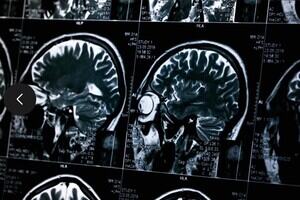Course overview
- Provider
- Futurelearn
- Course type
- Free trial availiable
- Deadline
- Flexible
- Duration
- 2 hours
- Course author
- Dr. Cara Anne Poland, MD, MEd, FACP, DFASAM
Description
This two-week course provides an overview of neurobiological adaptations that occur during active addiction to help you better understand your patients, and improve your quality of care.
You’ll gain knowledge of the neurobiology of biopsychosocial disorders as well as the major genetic contributors to addiction.
With this knowledge, you’ll examine how the dysfunction in these neurobiological circuits can ultimately result in an individual’s pursuit of reward or relief by substance use and other behaviours.
Examine the biopsychosocial model of addictionYou’ll delve into the causes of substance use disorders including environmental factors and childhood traumatic events.
This will help you discuss the biopsychosocial model of addiction and its implications for the prevention and treatment of addiction disease.
Explore addiction treatment with industry expertsBy the end of the course, you’ll be able to explain how understanding addiction as a chronic disease positively impacts the survival and recovery of people with addiction.
Learning from the experts at The American Society of Addiction Medicine (ASAM), you’ll also be able to identify the primary medications used in addiction treatment and their effect on the brain’s circuits and homeostasis.
With this knowledge, you’ll have a better understanding of your patients with substance use disorders and know how to improve the quality of treatment you provide.
Similar courses

-
Flexible deadline
-
3 hours



